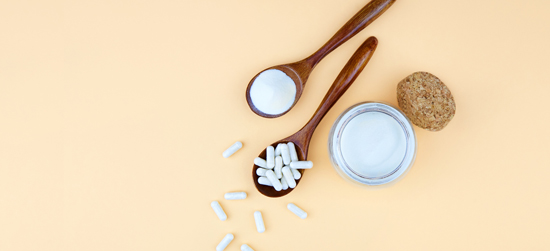
Powders, pills or liquids – supplemental collagen comes in all shapes and forms. But is it doing your skin or joints any favors? Here orthopaedic surgeon Beau Konigsberg, MD, and dermatologist Ronald Sulewski, MD, explain if collagen supplements show any proven benefits.
Does collagen help your cartilage or joints?
"Many types of supplements that claim to promote cartilage restoration and healthy joints have been tested extensively. There is no evidence, that we can measure, that they do anything," says Dr. Konigsberg. "Unfortunately, they are often expensive and without benefit. Someday there will be a breakthrough in cartilage restoration and growth but at this point there is nothing reputable on the market."
The good news is that there aren't any known dangers to ingesting collagen. "I don't recommend collagen supplements for joint pain, but it's harmless if someone chooses to use it," says Dr. Konigsberg.
Does collagen support your hair and skin?
"There have been some small studies that show improvement in skin hydration and moisture after ingesting different types of collagen. Other studies showed improvement on wrinkling and elasticity," says Dr. Sulewski. "I look forward to more robust studies examining how ingested collagen can support the skin."
Dr. Sulewski can vouch for treatments that do make a difference. "As dermatologists, especially ones with a focus on cosmetics, we try to build collagen in the skin by targeting the areas we want improvement with specific procedures," he says. "This is in comparison to just supplementing the diet with collagen and not knowing if it will be absorbed or where it will go. For example, certain laser procedures help to minimize wrinkles by inducing controlled repair mechanisms and helping the skin to lay down its own collagen."
Alternatives to collagen supplements
You don't have to buy pricey collagen supplements. Plenty of foods can improve the appearance of your skin. "In general, most healthy, well-balanced diets provide the backbone for healthy skin," says Dr. Sulewski. "Remember to get enough healthy fats, as fats are important for hair and skin health. Also, a normal protein diet provides the amino acids that make collagen." Nutrients that help your body produce collagen include zinc, vitamin C and copper.
Foods that support collagen production include:
- Fish
- Chicken
- Egg whites
- Berries
- Garlic
- Bell peppers




